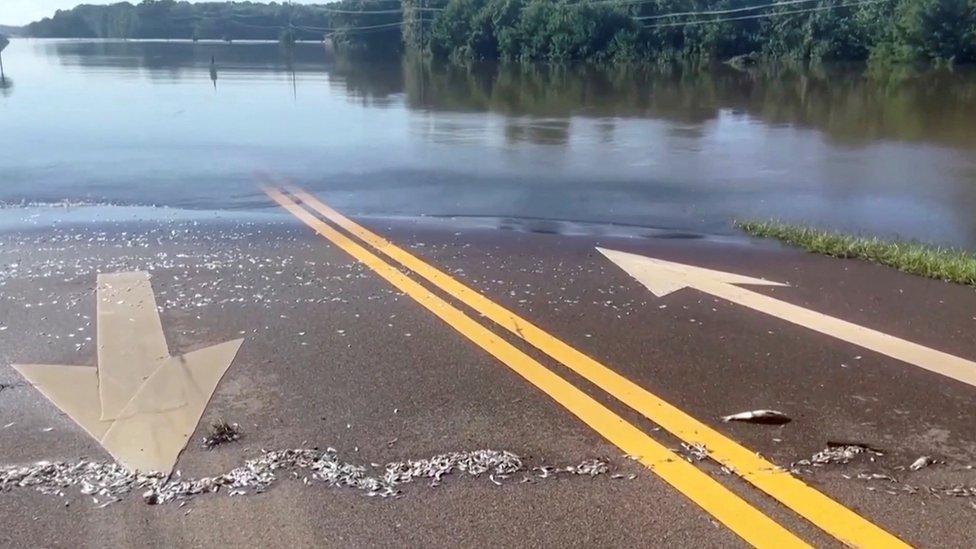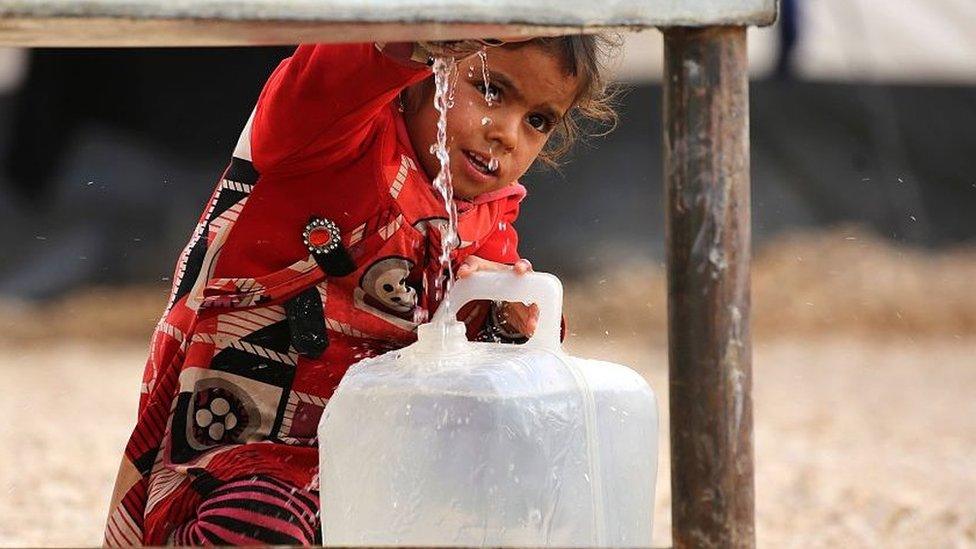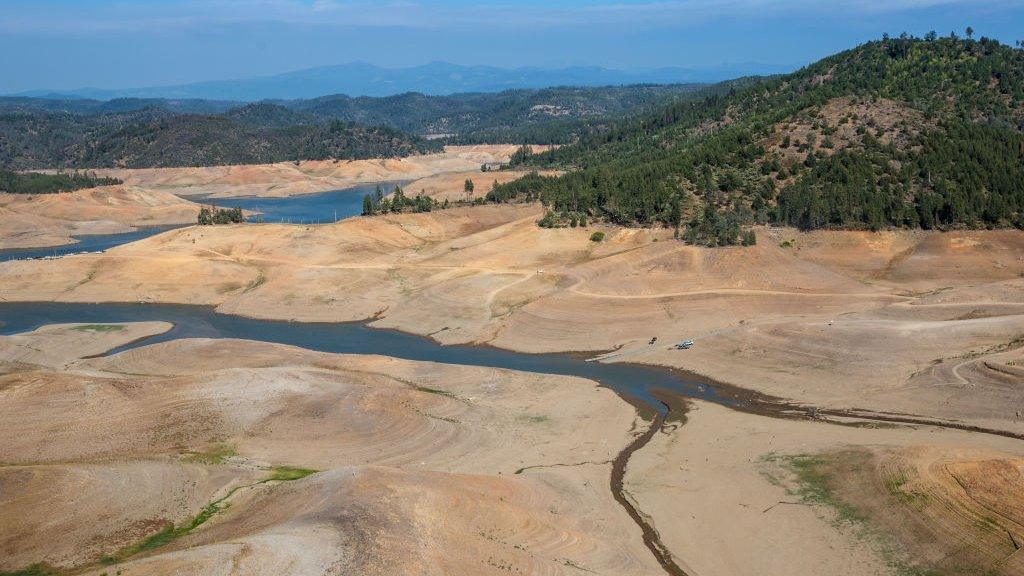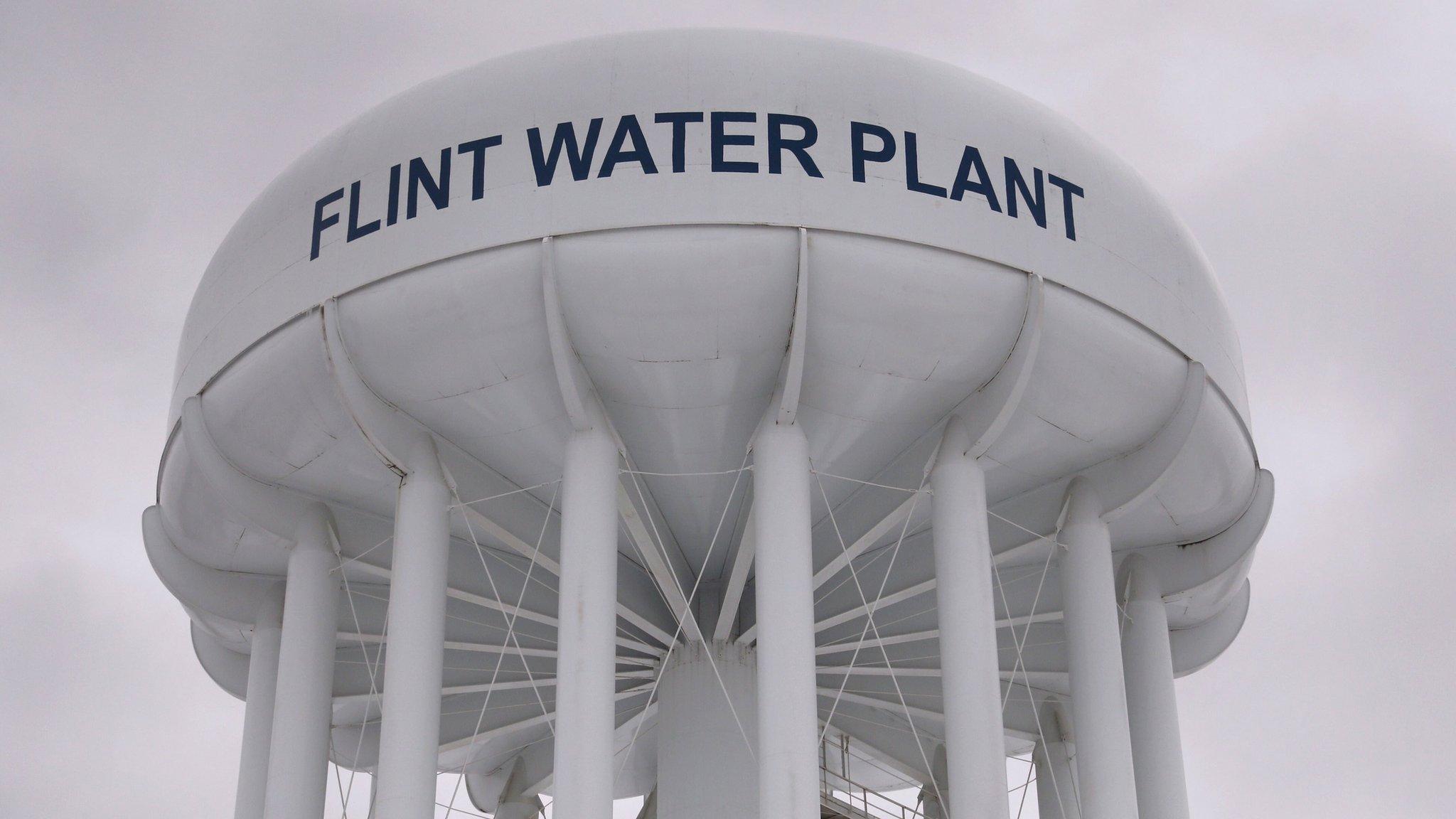Jackson, Mississippi has 'no water to drink or flush toilets'
- Published

Some 180,000 residents in Jackson, Mississippi have "indefinitely" lost access to reliable running water after excessive rainfall and flooding.
Rising floodwaters over the weekend breached the city's main water treatment facility, bringing it to the brink of collapse.
A state of emergency has been declared, and schools, restaurants and businesses have temporarily closed.
The city had already been under a boil-water notice for a month.
Problems at the OB Curtis Water Plant began after heavy rains caused the Pearl River to crest and spill over onto city streets over the weekend.
City hall confirmed on Monday that river water had entered the facility, which treats more than 50 million US gallons (190 million litres) per day.
Both the city and state are distributing bottled drinking water to residents as well as non-potable water for toilets via tanker truck, with Mississippi's National Guard assisting relief efforts.
On Tuesday afternoon Jackson Mayor Chokwe Antar Lumumba said the "very fragile" city-run plant would not turn off its water supply but officials needed time to treat the water.
He blamed the system's failure on staffing shortages and "a set of accumulated problems based on deferred maintenance that has not taken place over decades".
"It was not a matter of if our system would fail, but a matter of when," he said.
The White House said it was "closely monitoring" the crisis and has been "in regular contact" with Mr Lumumba.
Governor Tate Reeves said during an emergency briefing Monday night that the city would be without "reliable running water at scale" indefinitely as the plant's main motors and the backup pumps too had failed.
"It means the city cannot produce enough water to fight fires, to reliably flush toilets, and to meet other critical needs," said Mr Reeves.
Local media reports that Governor Reeves, a Republican, and Mayor Lumumba, a Democrat, are at odds over the response.
The latter rejected a claim by the former that Jackson homes are receiving "raw water from the reservoir" through their pipes, saying "there was no raw, untreated water that went out" on Monday.
Officials have boosted production at a second treatment facility from 20 to 30 million US gallons per day, but water pressure has dropped system-wide.
All public schools in Jackson shifted to virtual learning on Tuesday amid the crisis, while businesses and restaurants reported needing to purchase ice and water jugs.
The southern state's capital is more than 80% African American.
Experts say climate change is driving more extreme weather events like the rainfall in Jackson.
The heavy rains this August have forced evacuations, inundated homes and washed away roads.

How have you been affected by the flooding? Share your experiences by emailing haveyoursay@bbc.co.uk, external.
Please include a contact number if you are willing to speak to a BBC journalist. You can also get in touch in the following ways:
WhatsApp: +44 7756 165803
Tweet: @BBC_HaveYourSay, external
Please read our terms & conditions and privacy policy
If you are reading this page and can't see the form you will need to visit the mobile version of the BBC website to submit your question or comment or you can email us at HaveYourSay@bbc.co.uk, external. Please include your name, age and location with any submission.
Related topics
- Published2 August 2021

- Published15 February 2022

- Published10 November 2021
